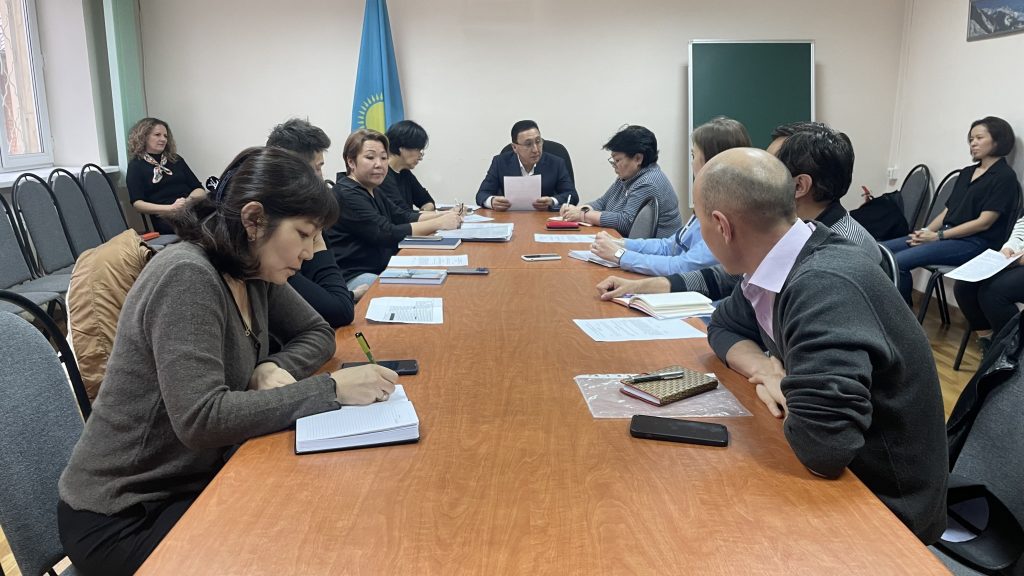At the meeting, the Work Plan of the Scientific Council for 2024 was discussed and adopted, and changes in the Scientific Council members’ list were approved.
In his opening remarks, IMBB General Director, Professor K.O. Sharipov provided brief information on changes in the Rules of basic, grant, program-targeted financing of scientific and scientific-technical activities and commercialization of the results of scientific and scientific-technical activities, financing of scientific organizations carrying out fundamental scientific research, approved by the Order No. 563 of the Minister of Science and Higher Education of the Republic of Kazakhstan dated November 6, 2023. The attention of members of the Scientific Council, as well as project managers was drawn to the need to study in detail the document for further use in their work, in particular, during implementation of current projects as well as preparation of applications for grants and programs.
The heads of the laboratories presented information on scientific results that can be introduced into production (commercialization of RSSTA, provision of services).
General Director of IMBB, Sharipov K.O. added that several meetings were recently held in Astana and Almaty with the participation of the Minister of Science and Higher Education Sayasat Nurbek, namely – a strategic session “Fundamental science and its applied capabilities”, the board of the Ministry of of Science and Higher Education of the Republic of Kazakhstan, as well as a meeting of the Public Chamber under the Mazhilis of the Parliament of the Republic of Kazakhstan to discuss the Law of the Republic of Kazakhstan “On Science and Technology Policy”. At all these meetings, they talked about increasing the requirements for the effectiveness of scientific research and its focus on solving specific socio-economic problems.

